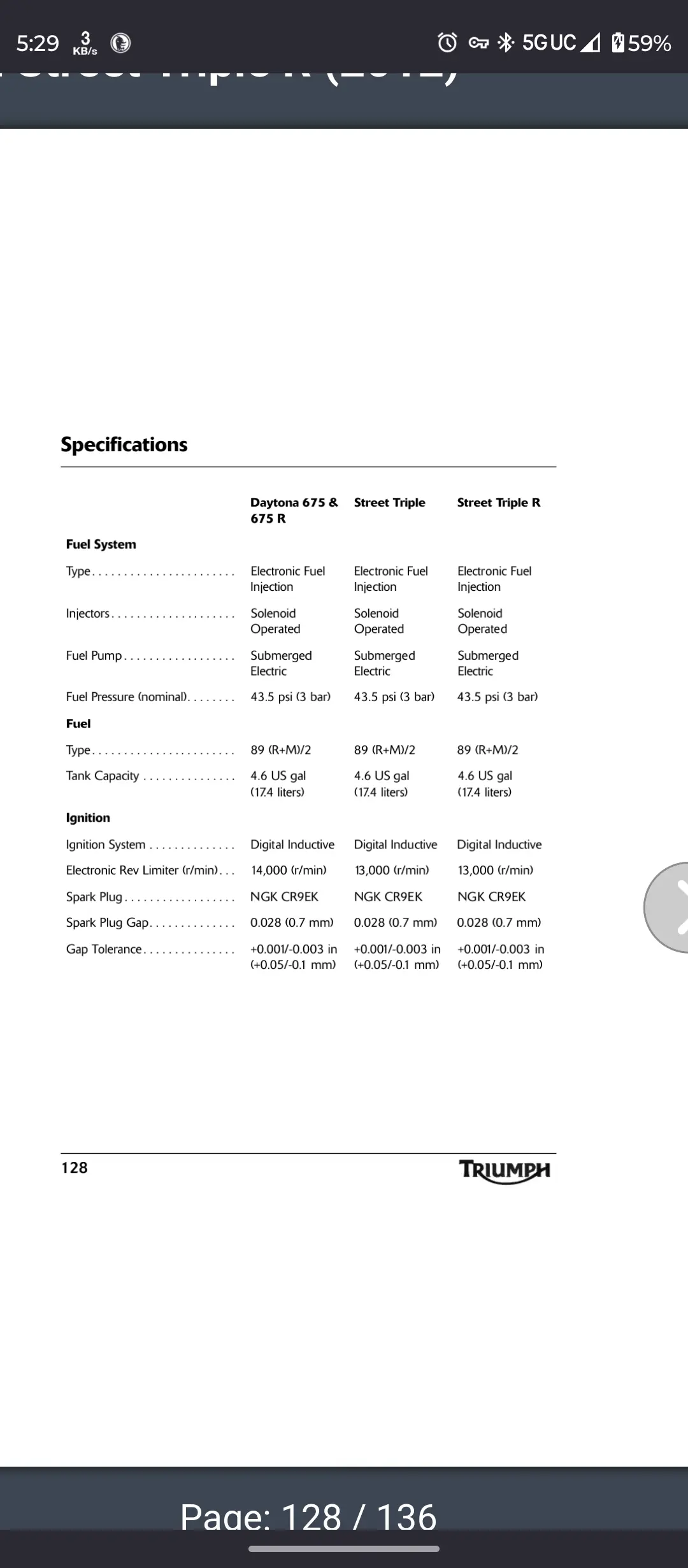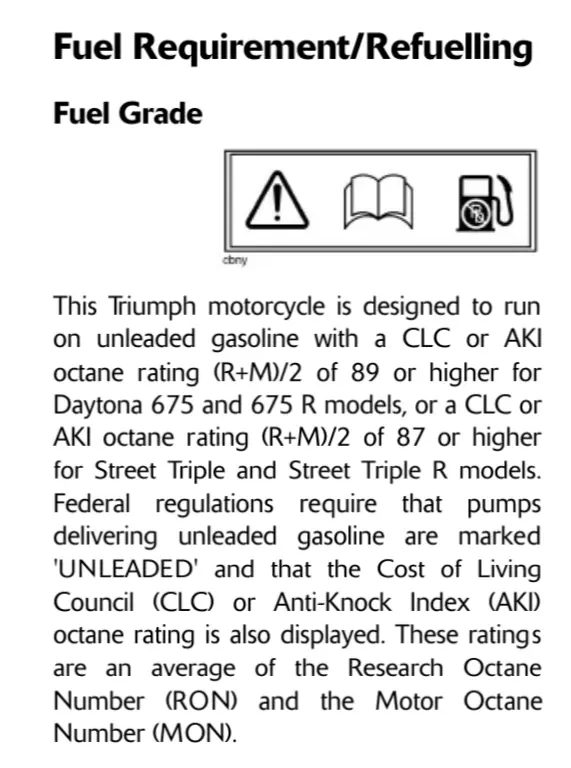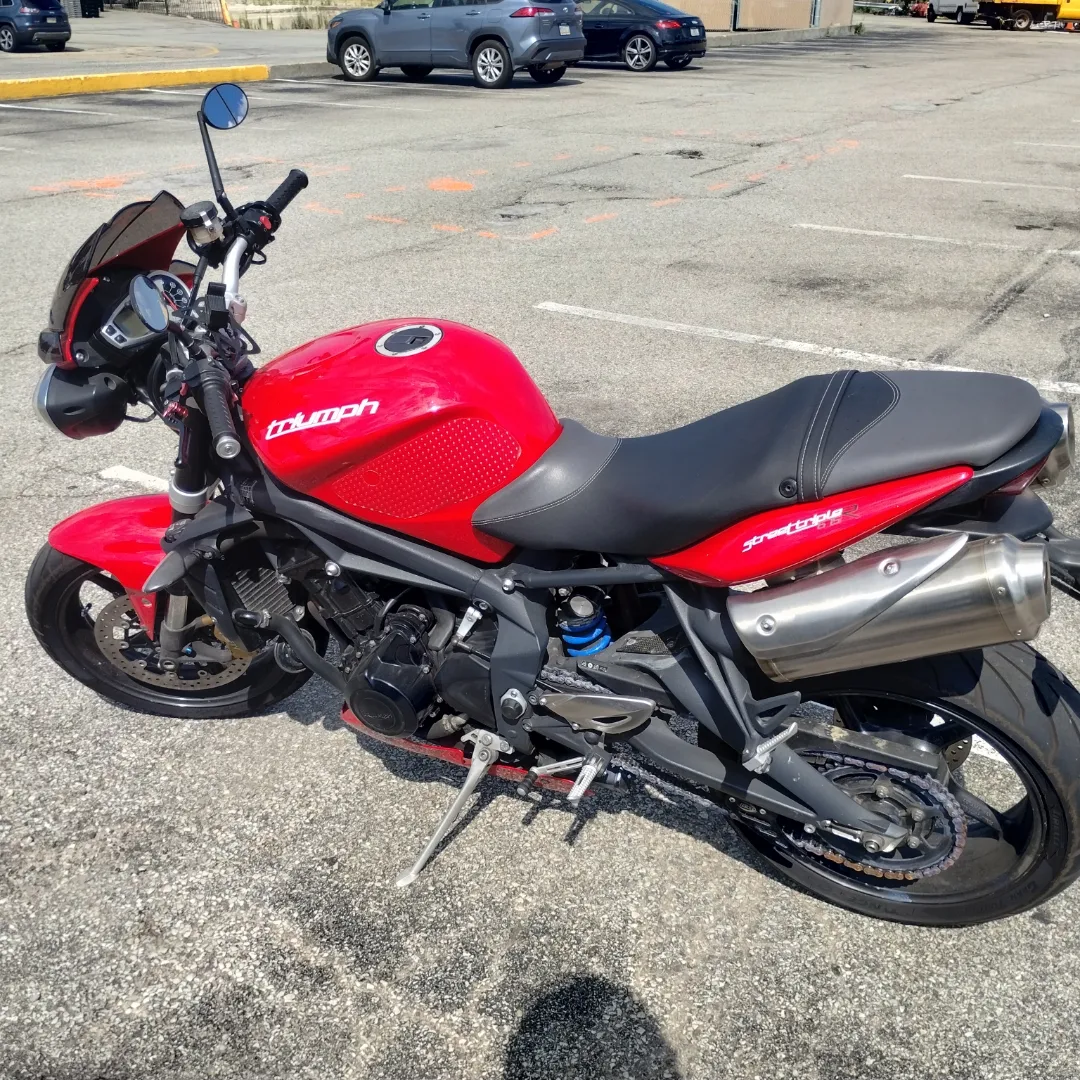Beautiful bike. I've got a '14 STR in white and red and I love it. I don't think I'll ever sell it.
Motorcycles
Here we discuss everything related to riding, maintenance and gear.
I bought a 2010 brand new in 2010. Traded it in 2019 and have regretted that ever since. I've got a new 2020 now, and it's just not the same.
Just got a '16 two months ago.
The one thing that I really, sincerely dislike is the rider body position. It's bolt upright. That means that >85mph, my head is catching all of the wind, and it's trying to push my head backwards. I think that ditching the riser bar and moving to 1-2" rise clip-ons will help. (My prior bike was a CBR600RR that I killed the engine on at 82,000 miles.) The stock headlights are also anemic if you're actually riding at night in a rural area.
On the other hand... Not having to take off cowls to service it is nice. Chain slack adjustment is a pain with the included tool, but there's no worry about not having your chain aligned. Rear wheel bearings are easy to clean and grease. Cylinder inserts can be replaced when you wear them out (!!!). While it's purely subjective, the sound is nicer than the high-pitched scream that I had from my Honda, and quite a bit quieter.
As long as you don't have electrical issues, you should be able to ride it right into the ground.
Unfortunately, I've already had an electrical issue, as the positive battery terminal connection is rusted. But I was able to get it working again.
My real worry now is the service cost. Currently the bike has 23.9k miles and the dealers in my area want $1700 for the 24k service. That's literally 5x what I thought it would cost based on other Internet searches. Unfortunately, this bike was already a bit of a stretch, so I simply can't afford that.
Yeah, that's crazy. If you're handy and you have the tools, you can do most of it yourself. If you've done service on a car or motorcycle before, you may well have a lot of the basic tools you need.
This is going to seem like a lot. But just take a deep breath and relax, it's not as awful as it seems.
The big action items at 23k--aside from normal things like air filter, oil/oil filter--are going to be things like replacing spark plugs, checking valve clearances, fork service (replacing the oil), flushing coolant, flushing brake fluid, servicing the rear wheel bearings, and balancing the throttle bodies. Get yourself a complete service manual; I have a copy here. I'd suggest printing it out, double sided, and getting it spiral bound at a FedEx Kinkos.
The absolutely critical: oil/oil filter and air filter. Do these no matter what. The oil filter is in an awkward position on a '16; you'll need the correct size oil filter socket to remove it, since a strap wrench won't fit in. K&N filters have a bolt head on them that makes future removal easier. Oil level is a pain in the ass to check. It should be under 4qts of oil, just regular 4 ~~cycle~~ stroke 'racing' motorcycle oil, 10w-40. A K&N air filter is also preferable--IMO--to a Triumph filter, mostly because it gets hard to find the correct Triumph air filters in-stock in the US, and you can clean and re-oil/re-use the K&N ones. Clean them on the same schedule as your oil replacement though! I ordered the wrong one last time; if you need one, PM me which part number you need, and I'll see if I have the correct one for your year. If I do, I'll mail it to you for free, since I can't use it.
For throttle body balancing, you'll need a Dealer Tool interface and a laptop. At 23k, my throttle bodies were perfectly in balance; no adjustment was necessary. I need the tool to reset the service interval icon on my bike, I'm not sure if the '12 has a service interval indicator or not.
Fork service requires a tool to compress the spring (T3880067 is the Triumph p/n, but you can get a cheap one on eBay for less, and it will work just fine), and probably another person to help you; it's a three hand job, in my experience. Off the top of my head, I don't know how Triumph sets the oil level in the fork, or what the oil spec is, but honestly, it's not critical; your seals aren't going to fail, it's just not going to be quite as responsive as it should be. There's a MotionPro tool for checking oil level that I used for my CBR600RR when I replaced the bushings and seals, and it was under $100.
Servicing the rear wheel bearing requires a single-sided swingarm paddock stand, or an Abba superbike stand; the latter is more stable, IMO. ($250 is about the cheapest that you can do this, unfortunately.) You'll need a 47mm socket (I think; sockets this size are 3/4" drive), a 3/4" female to 1/2" male adapter, and a 1/2" torque wrench. You may also want the eccentric bearing greasing service tool (p/n T3880340) and a grease gun, although I've seen people do this by hand.
Flushing coolant is pretty straight forward. There are a few different additives you can use to run through the system that will clean out deposits, but you'll need to really thoroughly flush the system afterwards.
Flushing brake lines is equally straight forward; you'll need a bleeder (you may already have one if you do any work on cars; they're under $50 at Harbor Freight), and you'll need a pint or so of DOT 5.1 brake fluid (not DOT 5; that's silicone-based, and will do Very Bad Things to your motorcycle). If you have ABS, you'll need to use the Dealer Tool interface to fully bleed the brakes. If you've bled brakes before, this should be a snap.
Replacing spark plugs starts to get annoying; you have to remove the gas tank and air box to get to them.
Valve clearance is the hardest job. These are a shim-under-bucket design, so you'll need a micrometer (an SPI 0-1" mic is fine; you don't need Mitutoyo, Brown & Sharpe, or anything super nice for this), some feeler gauges, an assortment of shims, a calculator, a notebook, and a pen. Any good video on YouTube should show you how to measure clearance. If anything is out of spec, you'll need to remove the cam chain tensioner lifter and then the cam shafts in order to change the shims. The service manual has pretty good directions, but seeing the process with any other make/model that uses the same general design might make it a little easier to understand what the manual is saying.
Thank you so much for your help! I don't have many tools and I don't have a garage, but I can certainly attempt an oil change or more basic things. I still want to leave the hard stuff to a shop. But does this mean I'm really gonna pay this much every 12k miles?
Also the service manual you are sharing says speed triple, not street triple.
Oh, shit, I misread your title! I had been thinking Speed Triple the whole time! This should be the correct manual for your bike.
That does make paddock stands a lot easier though; you don't need a single-sided stand. Other things--valves, coolant, etc.--still apply.
As far as costs go... Yes, probably, unless you find a less expensive mechanic (and Triumph dealers tend to be pretty pricey). When I looked at a quote for service on my Speed Triple, 3/4 of the quote was for labor. All of these things just take time, and some of them can take a very long time. Of the maintenance service items, aside from oil and air filter, the most critical is going to be valve clearance. As valves and valve seats wear, you'll end up with less clearance; if you don't shim it back into tolerance, the valves won't completely close, and you'll lose compression. (It has the potential to do other terrible things as well.) Fork service, well, you're going to lose performance as the oil breaks down. If you lose a seal and start leaking oil, you'll need to do that immediately. Coolant flush is mostly not critical, as long as you always have a decent coolant level. A brake line flush is mostly about purging water; brake fluid is hygroscopic, and will absorb atmospheric moisture. As your brakes heat up, the water in the lines can boil, and then that creates a compressible bubble of steam that will limit your ability to brake. (Water in your lines also leads to rusted components.) If you do a lot of sustained braking--riding on a track, downhill through mountains--that's going to be very bad. Otherwise, it's not as critical.
...And honestly, service on any motorcycle where you're really keeping on top of things is going to be expensive, if you have someone else doing the work. I think that I ended up paying $500-ish for the labor on replacing a wiring harness, back when I was uncomfortable taking my bike apart on my own. Now it would be a hassle, but easily done in a day.
Labor costs , combined with the frequency of certain maintenance--like cleaning and lubricating chains--are the two primary reason that so many motorcycle riders do their own.
Missing one piston but those headlights are nice.
The headlights are a weird point of controversy. I personally don't have much of an opinion on them, I just like high revving triples. More unique with a wider powerband than an inline-4.
Motodemic makes a headlight conversion kit for them that allows you to relocate your instrument cluster, and put in a single 7" round headlight. You can even get the JB Speaker adaptive headlight if you do a lot of night riding. That's def. on my list of things to get once i finish parting out my '12 CBR600RR.
I have a pet peeve with 3-cillinder 4-stroke engines... pay you no mind.
I'm curious, why?
It seems unbalanced to me.
If it's one cylinder... ok, i guess. Two or four... makes sense... but three? Maybe if 2 are on intake/compression and the other on explosion/exhaust but is the other larger?
Dunno... not a mechanical engineer though so meh...
Actually, 3 cylinders are quite cool. It’s got more torque than a 4 cylinder and it’s way lower in the rpm’s so it’s more useful (quick jumps in traffic to get out of the way in a hurry), and more horsepower so better top end speed than a 2 cylinder. I think they’re a great balance; unless you do 200mph everywhere you go and need a 4 cylinder, or can’t stop saying “bruuuuther” and need 2 LOL.
Nah I'm cool with very occasionally hitting 200 km/h on my 600cc ~100HP naked FZ6.
My second bike will probably be a FJR or a GTR.
Both great choices! BTW, I was only being a bit tongue in cheek. Personally I love all bikes and actually have just 2 cylinders myself. Although as it’s a Triumph, it’s less “bruuuther” and more “cup o’ tea ol’ chap?” LOL.
I know for most triples, they fire evenly at 240 degrees of crank rotation. The cylinders should have perfect primary balance in the same way that three-phase alternating current is balanced (please correct me if I'm wrong on this). The secondary balance will be off, but this is relatively minor. Overall, I believe triples have better overall balance than twins, but less than fours.
For a better source, check out this FortNine video: https://www.youtube.com/watch?v=aOTz0Ol8fLA
Edit: The above video says triples are very imbalanced, maybe I'm quite wrong here.
Congratulations! I got to test ride one of those when I bought my Speed Twin and loved it. Awesome choice and definitely not something you’ll be bored with anytime soon, if ever. And don’t worry about the mismatch or feeling like you’re not using its full potential. In time you’ll become more comfortable at your own pace and you two will become one (hopefully in the good way LOL).
I know I'm replying to my own post here, but I found a discrepancy in the user manual. Should I fuel it with 87 or 89 AKI gas?


You want 87+ for your model. The 89+ is for other models entirely.
